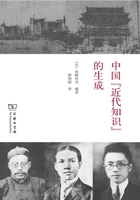
4 托马斯·卡莱尔(Thomas Carlyle,1795—1881)
爱默生在执笔《论自然》之前的1833年,初次到欧洲旅行,在爱丁堡认识了托马斯·卡莱尔,据说两人的友谊终生不变。辜鸿铭在爱丁堡大学学习期间,卡莱尔是名誉校长(就职演说是在1866年)。另外,从槟榔屿到爱丁堡,一直陪伴着辜鸿铭的布朗的父亲是卡莱尔的友人,所以与其全家都有亲切交往。辜鸿铭经常引用歌德,卡莱尔也醉心于歌德,将《威廉·迈斯特的漫游时代》译成了英语,并与歌德有书信交流,这些都广为人知。
下面看一下辜鸿铭在《中庸》注释中对卡莱尔的引用。在也曾引用过爱默生的第12章,引用卡莱尔之前的一段话如下:
天地之大也,人犹有所憾。故君子语大,天下莫能载焉,语小,天下莫能破焉。
即便是对于广大的天地,人们依然有所不能满意。因此,当君子谈论(道的)巨大之处的时候,全世界无论什么都无法承载其大。而当君子谈论其微小之处的时候,全世界无论什么都不可能将其更加细分。
Great as the Universe is, man with the infinite moral nature in him is never satisfied.For there is nothing so great but the mind of the moral man can conceive of something still greater which nothing in the world can hold.There is nothing so small but the mind of moral man can conceive of something still smaller which nothing in the world can split.
然后引用了卡莱尔:
Carlyle says: “Man's unhappiness comes of his greatness; it is because there is an infinite in him, which with all his cunning he cannot quite bury under the finite.Will the whole finance ministers and upholsterers and confectioners of modern Europe undertake, in joint stock company, to make one shoeblack happy? They cannot accomplish it ; for the shoeblack also has a soul quite other than his stomach, and would require, if you consider it, for his permanent satisfaction and saturation, simply this allotment, no more and no less: God's infinite Universe altogether to himself.”
卡莱尔说:“人的不幸来自于其伟大之处。那是因为,在他内部存在着无论如何也不能埋没于有限之下的无限。近代欧洲的财政大臣和家具商以及糕点商都集合起来办一家公司,大概也无法保证能够使一个擦鞋匠变得‘幸福’吧。那种事情本来就是不可能做到吧。之所以这样说是因为,擦鞋匠除了他的胃,还有灵魂,想到这一点便会明白,要想让他永远满足,就必须让他不多不少,一人独占神的无限的宇宙。”
引文出自卡莱尔《衣裳哲学》(Sartor Resartus)第9章。[18]在此,虽然通过“宇宙”、“无限”、“满足”等词语,《中庸》和卡莱尔被联系在一起,此外大概几乎看不出两者之间有什么关联。
还有一处对卡莱尔的引用,是在《中庸》第16章(但是辜鸿铭把这一章的位置和第20章交换了)。
子曰:鬼神之为德,其盛矣乎。视之而弗见,听之而弗闻,体物而不可遗。
先生说:“神灵的作用真是奇妙。想看却看不到其形状,想听却听不到其声音,但(出人意料的是)无论什么事物都不会遗漏,全都在其作用之下。”
Confucius remarked: “The power of spiritual forces in the Universe—How active it is everywhere! Invisible to the eyes, and impalpable to the senses, it is inherent in all things and nothing can escape its operation.”
这一章尚未结束,但是在此插入了以下注释。
Carlyle says: “Dost thou know any corner of the world where ‘force’ is not? The withered leaf is not dead and lost.There are forces in it and around it; else how could it rot?
卡莱尔说:“世界有不存在‘力’的角落吗?枯叶死去了,但是‘力’并未丧失。其内部存在力,其周围也存在。否则,它为什么会腐败呢?”
与前面一样,此处引自《衣裳哲学》第11章。[19]通过“力”(force)这个词,勉强能够把两者联系起来。但是,《中庸》里面本来没有与“力”(force)相当的词汇以至于看起来像是为了引用卡莱尔而在翻译时特地选择了这样的英语词汇。